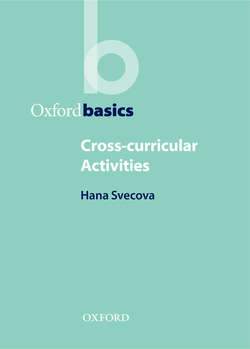Читать книгу Cross-Curricular Activities - Hana Svecova - Страница 3
На сайте Литреса книга снята с продажи.
Introduction
ОглавлениеWhen I became a teacher, I was convinced that the concept of cross-curricular links was invented to make a teacher’s job miserable. I had the impression that cross-curricular teaching had very little relevance to what I was supposed to teach. I was sure there was no time for it in the packed syllabus and thought I was not qualified enough to work with cross-curricular topics. I was only an English teacher whose knowledge of other subjects was rather limited. Over the years, however, I began to realize that I did not have to be a scientific expert and that using cross-curricular topics made my lessons practical and motivating. What I thought was a burden proved to be a very good means of showing my learners that language is a great tool that enables us to exchange knowledge and opinions about the real world.
The benefits of cross-curricular activities
How can your learners benefit from cross-curricular activities? Cross-curricular activities:
give learners a sense of how English and cross-curricular subjects fit together. They see how the knowledge and skills they have learned can be applied to English.
encourage learners to work with topics so that they begin to see English as a means of communication and learning, not just a set of rules and list of words.
motivate learners to explore topics, either themselves or with their classmates, or with their teacher – in English.
give learners the opportunity to revise and consolidate their ability to use structures and vocabulary they have already studied.
can help increase learners’ self-confidence by giving them a chance to talk about what they have already learned or know from experience.
offer learners meaningful topics to talk about. A choice of interesting and relevant cross-curricular topics can help prevent the situation in which your learners understand, for example, how to use a structure, but they do not use it because they are short of ideas and do not know what to say. Cross-curricular topics make the content clear and specific.
help learners to see the relationship between the school curriculum and their real-life experiences.
help learners to think and solve problems, speak to each other in pairs or groups, and develop communication and presentation skills.
The units
The book contains 30 activity-based lesson plans ready for teachers to use. The units work with topics selected from science, mathematics, biology, geography, history, drama, art, music, and literature, which are relevant to the learners’ real-life experiences.
Who is the book for?
The book is a good resource for teachers who would like to apply ideas and strategies in their teaching which encourage communication. It can be successfully used in schools by teachers who only have a few resources and are looking for ways to make their lessons more interesting and motivating. The material is suitable for teachers who are just starting to develop their teaching skills, or who have little training, as well as teachers with more experience. The activities can be used with learners between elementary and intermediate levels in both small and larger classes. With the exception of very young learners, it is appropriate for all age groups.
